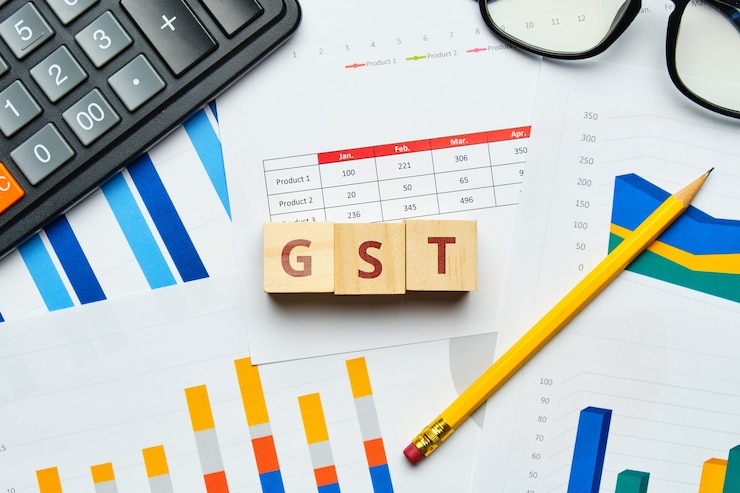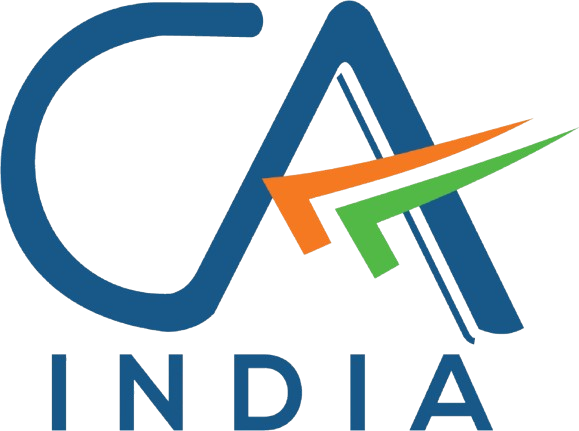GST Services Overview
The Goods and Services Tax (GST) is a consolidated tax system that replaces a myriad of different indirect taxes levied by the Centre and state governments into a universal tax. GST was implemented from 1st July 2017, with the objective of “One Nation One Tax”. Businesses to file monthly, quarterly, and annual returns under the GST regime. The registered persons with a yearly turnover of more than ten crores are also required to file an audit report.

Our GST Services
We at dheeraj Chartered Accountants understand the importance of GST for businesses and the Indian economy as a whole. Our team of experienced Chartered Accountants provides comprehensive GST services to our clients in Delhi / NCR, including New Delhi, Noida, Gurugram (Gurgaon), and Greater Noida.
GST Registration Services India
GST Returns Filing Services
Our team provides GST returns filing services to businesses to ensure compliance with GST regulations. We assist in the timely filing of GST returns, including GSTR-1, GSTR-2, and GSTR-3. We also help businesses in reconciling the returns and making any necessary adjustments.
GST Assessment Services
Our team provides GST assessment services to help businesses comply with GST regulations and avoid penalties. We assist businesses in preparing and submitting required documents to the tax authorities, representing them during the assessment process, and ensuring a smooth and hassle-free process.
GST Advisory and Tax Compliances
Our team of experienced Chartered Accountants provides expert advisory services to businesses on GST regulations and tax compliances. We assist businesses in understanding the impact of GST on their operations and help them implement processes to ensure compliance with GST regulations.
Due Diligence and Litigation Services
Benefits of GST
The GST system has numerous benefits, including:
- Subsumed indirect taxes – GST has subsumed a bunch of indirect taxes such as VAT, CST, Service tax, CAD, SAD, and Excise, making tax compliance more straightforward.
- Simplified tax policy – GST has reduced the complexity of tax policies compared to the previous tax regime, resulting in fewer tax compliances.
- Elimination of cascading effect – GST has removed the tax on tax, reducing manufacturing costs, and leading to a fall in prices of consumer goods.
- Lowering tax burden – GST has lowered the tax burden on the common man, making it easier for them to obtain the same products that were expensive earlier.
- Increased demand and consumption of goods – GST has led to an increase in demand and consumption of goods, ultimately resulting in an increase in the production of goods.
Impact of GST on the Indian Economy
The GST system has a significant impact on the Indian economy, including:
- Decreases tax burden – GST has decreased the tax burden on producers and fostered growth through increased production.
- Removal of tax restrictions – GST has removed tax restrictions like toll plazas and check posts, eliminating the wastage of unpreserved things being transported.
- More transparent system – GST has made the system more transparent, allowing customers to know precisely the taxes to be paid and on what base.
- Increase in government revenues – GST has contributed to and made additions to the government revenues by extending the tax base.
- Removal of custom duties – GST has removed the custom duties applicable to exports, making India’s competitiveness in overseas markets increase on account of lesser costs of the transaction.
At dheeraj Chartered Accountants, we are committed to providing our clients with the highest quality GST services. Our team of experienced Chartered Accountants has the knowledge and expertise required to navigate the complexities of GST regulations and ensure compliance with the law. Contact us today to learn more about our GST services and how we can help your business thrive in the new GST regime.
FAQs
GST stands for Goods and Services Tax, which is a consumption tax imposed on the supply of goods and services in India. GST works on the principle of value-added taxation, where tax is levied on the value added at each stage of the supply chain, from the manufacturer to the consumer.
Any business with an annual turnover of Rs. 20 lakh or more is required to register for GST. However, certain businesses, such as those engaged in inter-state trade or e-commerce, are required to register for GST even if their turnover is below the threshold.
There are various types of GST returns, including GSTR-1, GSTR-2A, GSTR-3B, and GSTR-4, depending on the type of taxpayer and the nature of their business. The frequency of filing returns varies from monthly to quarterly.
Penalties for non-compliance with GST regulations can range from a monetary fine to imprisonment, depending on the severity of the offense. For instance, failure to register for GST can result in a penalty of up to 10% of the tax due, while willful tax evasion can result in imprisonment.
GST can impact your business in various ways, including changes to pricing, invoicing, and accounting practices. To ensure compliance, you should register for GST, maintain accurate records, and file returns on time. You may also need to update your software and systems to comply with GST requirements.
Input tax credit (ITC) can be claimed on GST paid on inputs used for the production or supply of goods and services. To claim ITC, you must be a registered taxpayer, and the inputs must have been used for business purposes. You must also have the necessary documentation to support the claim.
Yes, you can claim a refund for excess GST paid on purchases if you are eligible. The process involves filing a refund application with the relevant authority and providing supporting documentation.
Yes, small businesses with an annual turnover of up to Rs. 1.5 crore can opt for the Composition Scheme, which offers certain exemptions and reduced tax rates. Additionally, certain goods and services, such as healthcare and education, are exempt from GST.
To ensure that your business is prepared for GST audits and assessments, you should maintain accurate records, file returns on time, and keep all necessary documentation. You should also keep track of any changes to GST regulations and ensure that your systems and software are up-to-date.

